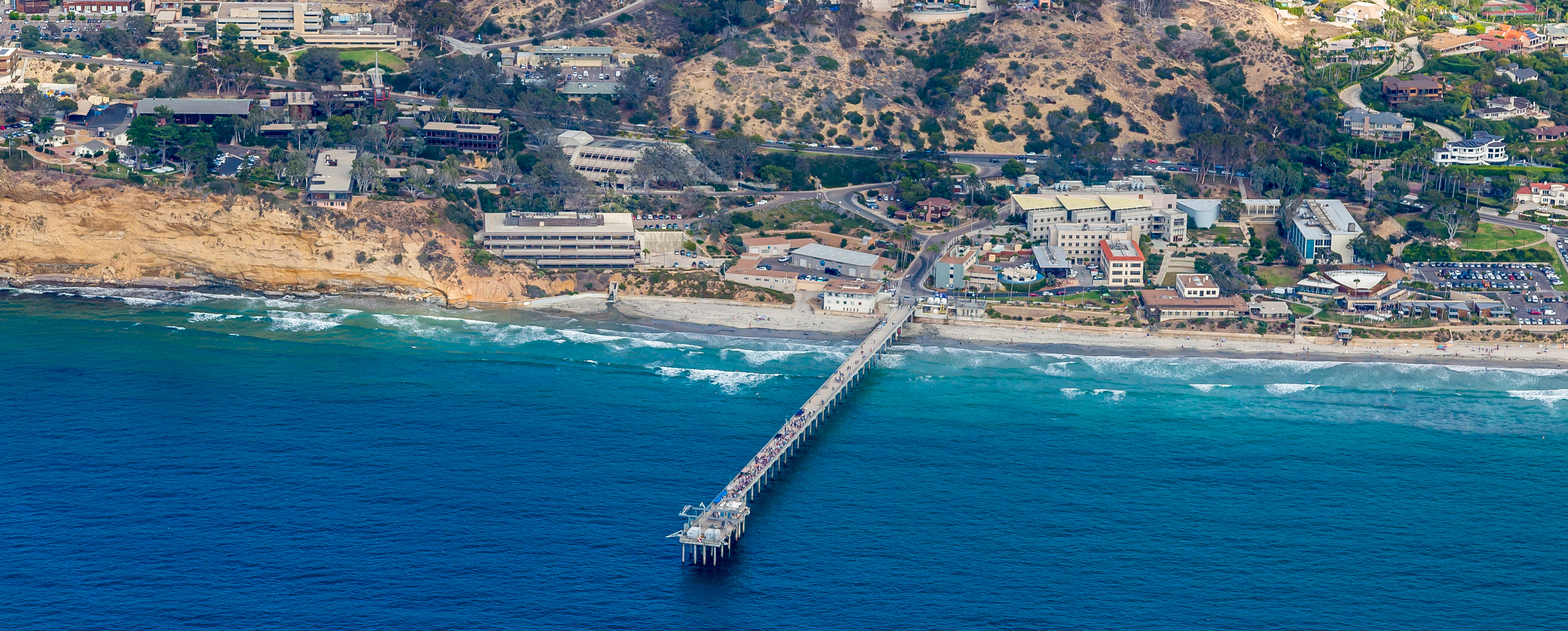Global S&T Development Trend Analysis Platform of Resources and Environment
| Ocean Protection Council Awards $1 Million to Scripps Oceanography Researchers | |
| admin | |
| 2018-12-03 | |
| 发布年 | 2018 |
| 语种 | 英语 |
| 国家 | 美国 |
| 领域 | 资源环境 |
| 正文(英文) |  Four researchers at Scripps Institution of Oceanography at the University of California San Diego were awarded a collective $1 million in funding to study topics ranging from saltwater bass populations to coastal cliff erosion. The awards from the Ocean Protection Council (OPC) are part of a larger grant to fund coastal and ocean management research projects in California. OPC was created in 2004 to help protect, conserve, and maintain healthy coastal and ocean ecosystems and the economies they support. The OPC works with diverse interests and provides the leadership needed to meet the accelerating and complex challenges of our time as set forth in the California Ocean Protection Act. California’s coast supports a massive blue economy but faces issues related to climate change, pollution, and other stressors. The projects funded by OPC are focused on areas such as sea-level rise and coastal resilience, marine pollution, and renewable energy. The findings of these projects will help inform management decisions to preserve ecosystems and livelihoods that rely on them. “The Ocean Protection Council prides itself on being a steward of California’s oceanic and shoreline protection and we were pleased to see Scripps Institution of Oceanography have four proposals receive funding that will further support this mission,” said Deborah Halberstadt, Ocean Protection Council’s executive director. “The research to be conducted by these principal investigators will help buttress the cutting edge scientific research that our state relies upon.” The OPC funding supports the following Scripps projects: Tribal Intertidal Digital Ecological Surveys (TIDES) Project: Using large-area imaging to assess intertidal vulnerability to sea-level rise with coastal indigenous nations Jennifer Smith, Associate Professor, Marine Biology Research Division Sarah Giddings, Assistant Professor, Integrative Oceanography Division Award amount: ~$250,000 Rocky intertidal ecosystems are among the most biodiverse and ecologically significant marine ecosystems along the California coastline. The TIDES project will work with California’s coastal indigenous nations to study the rocky intertidal zone using cutting edge 3D large-area imaging approaches to evaluate short- and long-term vulnerability of these systems to sea-level rise. The ultimate goal of this project is to produce robust sea-level rise vulnerability data while equipping local communities with the tools necessary to plan for future changes associated with rising sea levels. Reconstructing the population dynamics of Southern California Paralabrax species in the face of a changing ocean Brice Semmens, Associate Professor, Marine Biology Research Division, Director, California Cooperative Oceanic Fisheries Investigations Award amount: ~$250,000 Saltwater bass species are an economic engine for recreational fishing in Southern California. This project will leverage CalCOFI (California Cooperative Oceanic Fisheries Investigations) icthyoplankton samples and genetic analyses in order to develop a unique time series of bass species abundance dating back to the the late 1940s. These new data will provide valuable insights regarding the oceanographic drivers to these species, and will support effective fisheries management. Statewide assessment of California cliff erosion and retreat Adam Young, Associate Project Scientist, Integrative Oceanography Division and Center for Coastal Studies and Research Affiliate, Center for Climate Change Impacts and Adaptation Award amount: ~$250,000 This project will provide the first statewide high-resolution assessment of California coastal cliff erosion and retreat. The results will be used to detect erosion hotspots, map a coastal cliff stability and hazard index, and identify areas prone to future coastal erosion. This will be the largest study of its kind ever conducted and will provide essential information for future coastal planning. A DNA metabarcoding approach to monitoring fish spawning and population connectivity in Coastal Southern and Central California Ronald Burton, Professor, Marine Biology Research Division Award amount: ~$250,000 Ongoing changes in the ocean environment may lead to changes in the productivity of California's coastal fisheries. This project will apply DNA metabarcoding, a DNA-based method of species identification, to provide a cost-effective and comprehensive analysis of fish spawning activity at six shore stations spanning from La Jolla in the south to Santa Cruz in the north. In addition, the study will examine levels of connectivity among populations within each species. The data obtained by this project will provide information to managers on both spawning patterns and population structure for many of fish species that occur in the coastal waters of California. These projects are among 24 research initiatives that received a total of $6 million in funding through the Proposition 84 Competitive Grants Program. California Sea Grant and the University of Southern California Sea Grant facilitated review of the projects and will administer grants on behalf of OPC. |
| URL | 查看原文 |
| 来源平台 | Scripps Institution of Oceanography |
| 文献类型 | 新闻 |
| 条目标识符 | http://119.78.100.173/C666/handle/2XK7JSWQ/107720 |
| 专题 | 资源环境科学 |
| 推荐引用方式 GB/T 7714 | admin. Ocean Protection Council Awards $1 Million to Scripps Oceanography Researchers. 2018. |
| 条目包含的文件 | 条目无相关文件。 | |||||
| 个性服务 |
| 推荐该条目 |
| 保存到收藏夹 |
| 查看访问统计 |
| 导出为Endnote文件 |
| 谷歌学术 |
| 谷歌学术中相似的文章 |
| [admin]的文章 |
| 百度学术 |
| 百度学术中相似的文章 |
| [admin]的文章 |
| 必应学术 |
| 必应学术中相似的文章 |
| [admin]的文章 |
| 相关权益政策 |
| 暂无数据 |
| 收藏/分享 |
除非特别说明,本系统中所有内容都受版权保护,并保留所有权利。
修改评论